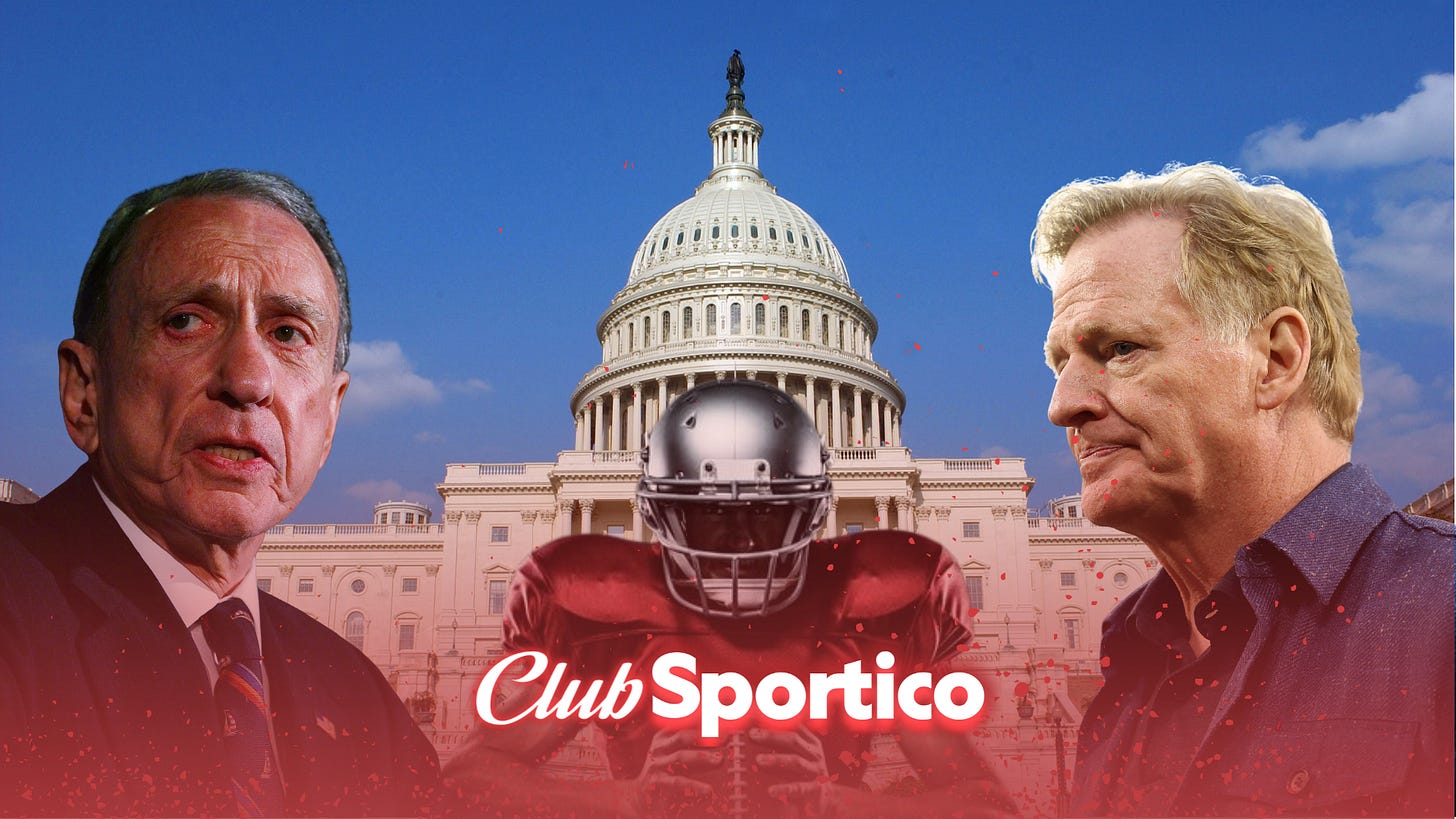“The only person that ever made the NFL quiver”
There are many reasons for the NFL’s massive success. Are we overlooking its antitrust exemption?
Welcome back to Club Sportico, where we break down the intersection of sports and money—with an extra bit of humor and opinion. Today, we’re talking about the bedrock of the NFL’s business.
Former NFLPA boss DeMaurice Smith joined our podcast this week, and about 40 minutes in we asked what he thought was the biggest existential threat to the NFL’s empir…
Keep reading with a 7-day free trial
Subscribe to Club Sportico to keep reading this post and get 7 days of free access to the full post archives.



